RSAC Conference 2025: The front line of cyber innovation
Ransomware, quantum computing, and an unsurprising focus on AI were highlights of this year's event

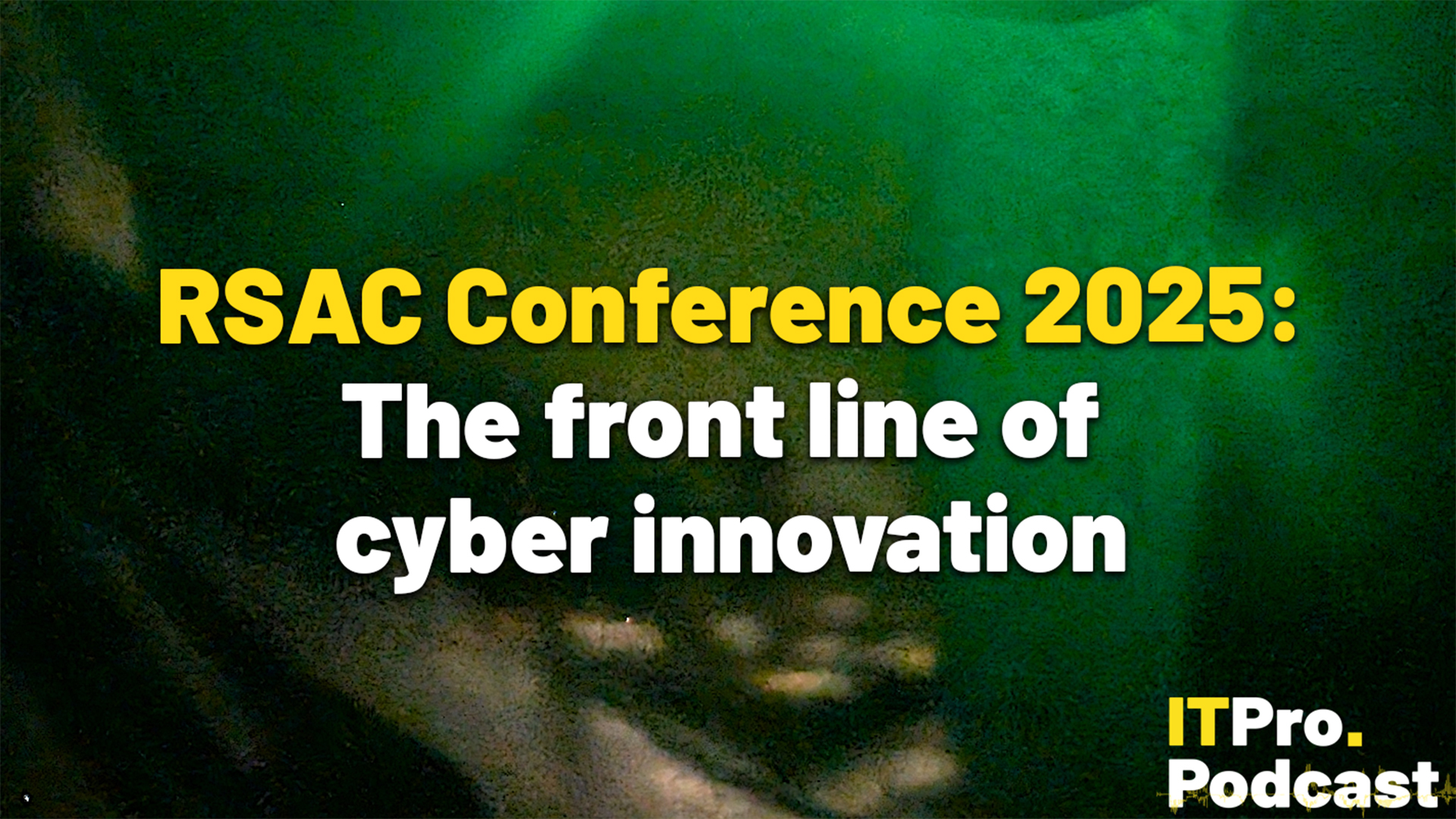
In the fast-changing world of cybersecurity, IT leaders have to keep up with evolving threats and new technologies to stay ahead of attackers.
With nation states lending a hand to threat groups with more pointed aims than ever before, alongside the double-edged sword of greater AI adoption in cybersecurity, there’s never been a more worrying – and exciting – time to specialize in the field.
This episode was recorded live at RSAC conference in San Francisco by Scott Becker, director of Webinar Programs at ActualTech Media and Alan Liska, threat intelligence analyst and ‘ransomware sommelier’ at Recorded Future.
Together, the pair discuss the future of the sector, how threats like ransomware compare to emerging concerns such as quantum decryption, and why AI is the topic on everyone’s agenda.
Highlights
“I do think one of the things that we're starting to see… is more interest in data governance, more interest in knowing and understanding where your data is, both inside your network and outside your network. And I've seen a lot of vendors talking about that now as they grapple with the reality that data theft is such a big part of ransomware attacks.”
“China has really talented hackers. They always have and they now have 30-plus years’ experience with not just how to carry out attacks, but how to build the tools and how to develop the software and so on. So you can never discount that 30-year experience, what you can bring in. Most of what happens behind the scenes in Chinese nation state attacks in particular, we don't have access to, we don't have insight into, because we just don't know.”
“So I don't know about good ways to go forward, but it does seem like a lot of what we're talking about now is putting more of the onus back on the state and local governments for defense. I actually think that's a bad idea. It's not that states aren't capable, it's not that local governments aren't capable, there are a lot of really dedicated employees who work in security for those organizations. But you're going up against nation states, you're going up against China, Russia, and really advanced, even cyber criminal threat actors. You need the intelligence that CISA can provide.”
Sign up today and you will receive a free copy of our Future Focus 2025 report - the leading guidance on AI, cybersecurity and other IT challenges as per 700+ senior executives
“So if quantum computing is 10 years away, governments need to start figuring out their encryption strategy now so they can start getting that data encrypted, to have it encrypted in time. I mean, that's just the reality.”
Footnotes
- RSAC Conference Day One: Vibe Is 'All In' on AI for Security
- RSAC Conference day two: A focus on new hacking tactics
- RSAC Conference day three: using AI to do more with less and facing new attack techniques
- Five things we learned from the 2024 RSA Conference
- “Governance is an irreplaceable role”: Microsoft Security VP on why diversity and sector expertise will keep security workers relevant in the age of agentic AI
- "There needs to be an order of magnitude more effort": AI security experts call for focused evaluation of frontier models and agentic systems
- ‘China has almost doubled their aggression in cyber’: Kevin Mandia and Nicole Perlroth warn organizations aren’t waking up to growing APT threats
- RSAC Conference 2025 was a sobering reminder of the challenges facing cybersecurity professionals
Subscribe
- Subscribe to The IT Pro Podcast on Apple Podcasts
- Subscribe to The IT Pro Podcast on Spotify
- Subscribe to the IT Pro newsletter
- Join us on LinkedIn

Rory Bathgate is Features and Multimedia Editor at ITPro, overseeing all in-depth content and case studies. He can also be found co-hosting the ITPro Podcast with Jane McCallion, swapping a keyboard for a microphone to discuss the latest learnings with thought leaders from across the tech sector.
In his free time, Rory enjoys photography, video editing, and good science fiction. After graduating from the University of Kent with a BA in English and American Literature, Rory undertook an MA in Eighteenth-Century Studies at King’s College London. He joined ITPro in 2022 as a graduate, following four years in student journalism. You can contact Rory at rory.bathgate@futurenet.com or on LinkedIn.
-
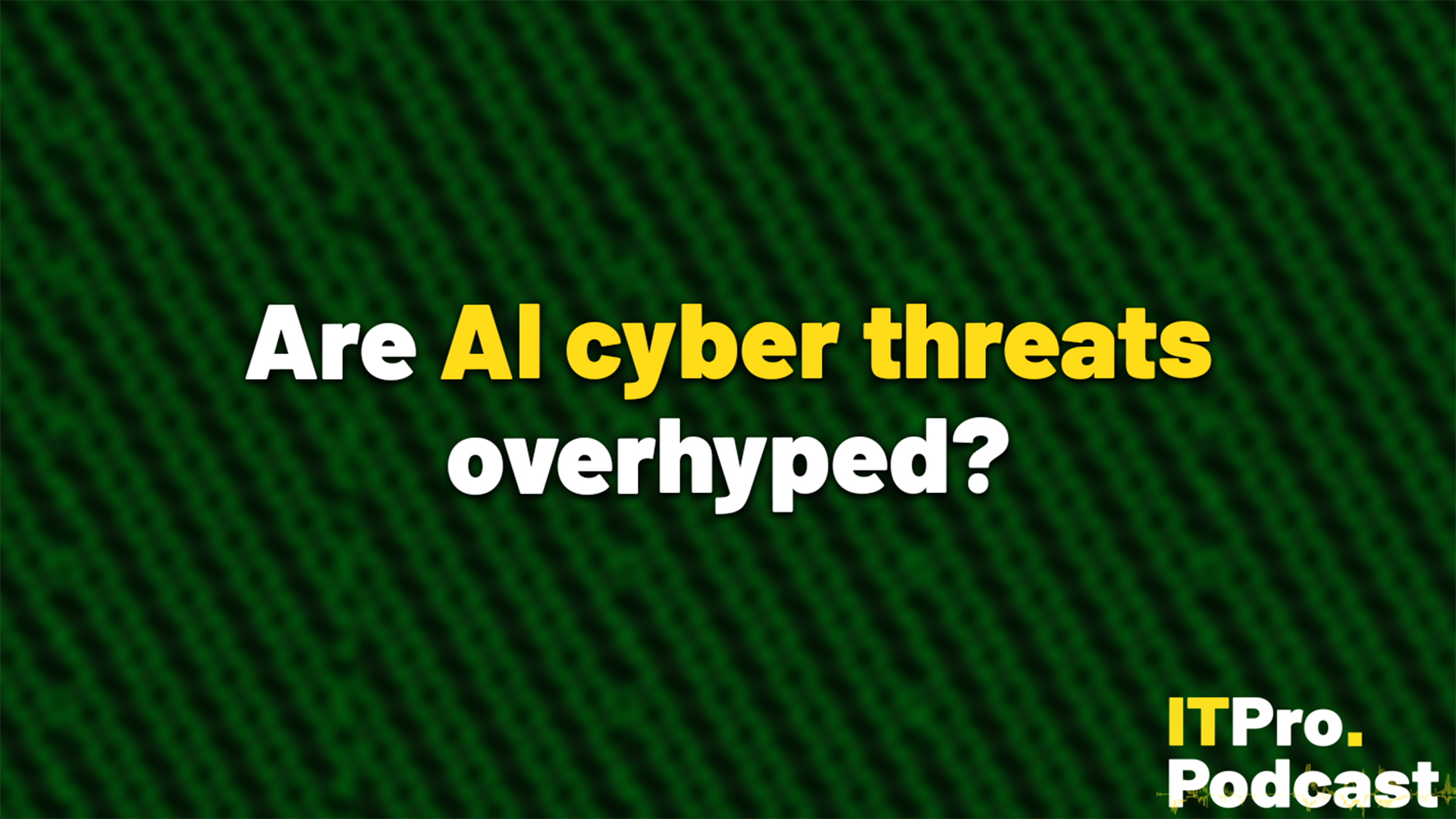 Are AI cyber threats overhyped?
Are AI cyber threats overhyped?ITPro Podcast As cyber teams turn to the threats posed by AI, rising attacks by state-sponsored groups and ransomware gangs remain the biggest threat
-
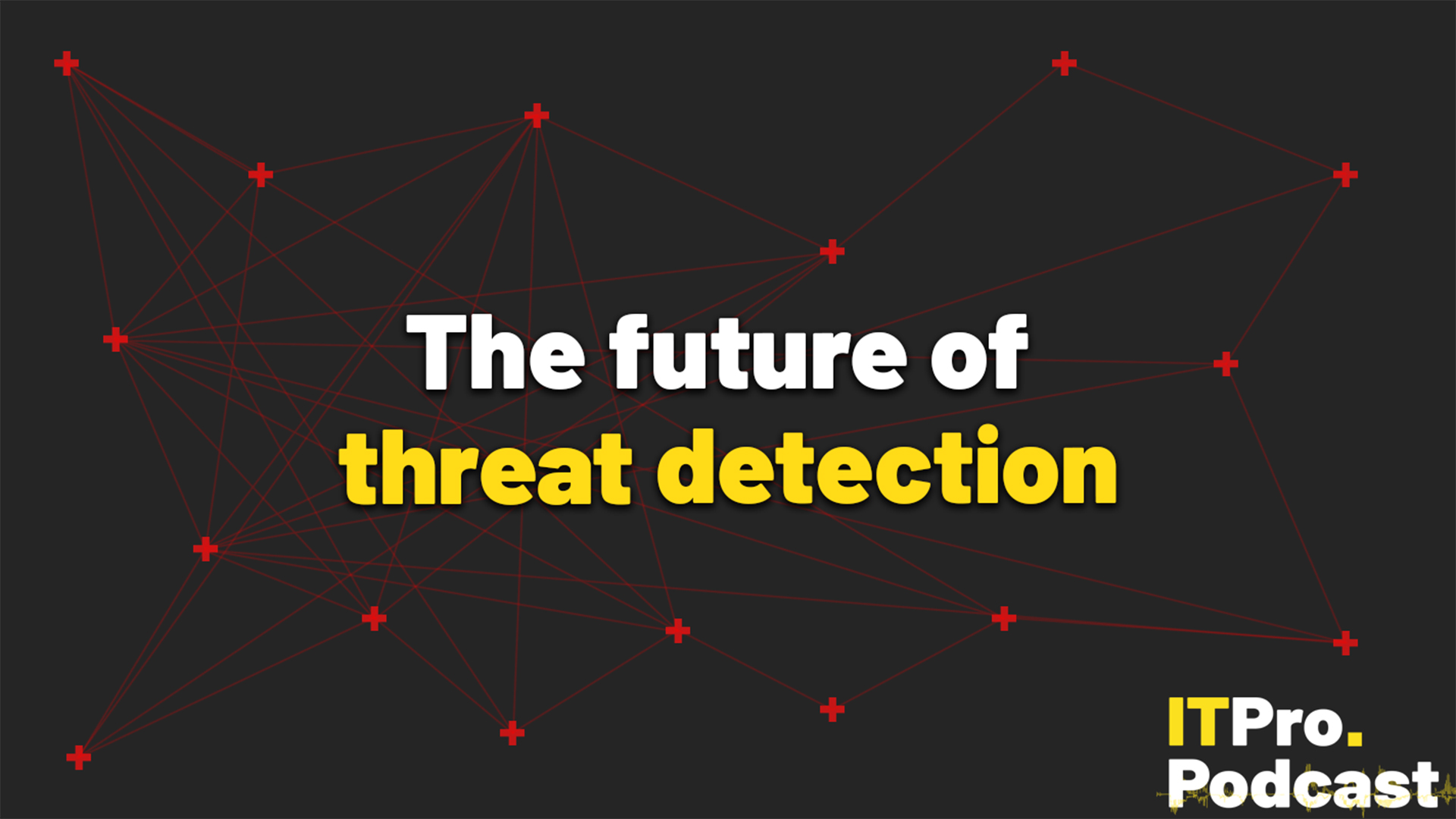 The future of threat detection
The future of threat detectionITPro Podcast To fight sophisticated threats, cybersecurity teams will need to unify data like never before
-
 November rundown: CrowdStrike's insider threat
November rundown: CrowdStrike's insider threatITPro Podcast As CrowdStrike grappled with a malicious employee, Cloudflare suffered a major outage
-
 Getting a grip on digital identity
Getting a grip on digital identityITPro Podcast As AI agent adoption explodes, security leaders will need better identity controls than ever before
-
 Let’s talk about digital sovereignty
Let’s talk about digital sovereigntyITPro podcast In the age of AI and cloud, where data resides is a key consideration
-
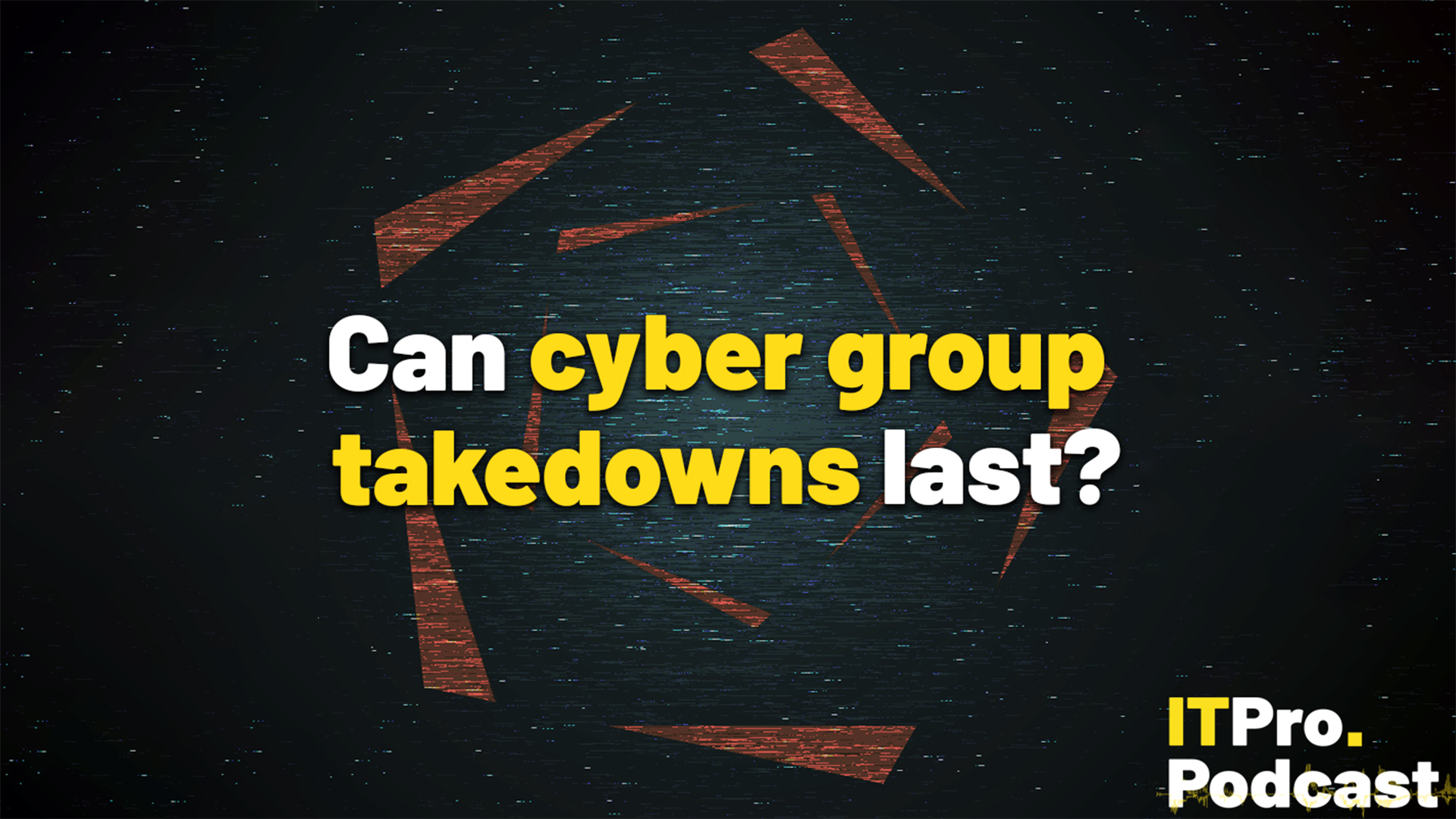 Can cyber group takedowns last?
Can cyber group takedowns last?ITPro Podcast Threat groups can recover from website takeovers or rebrand for new activity – but each successful sting provides researchers with valuable data
-
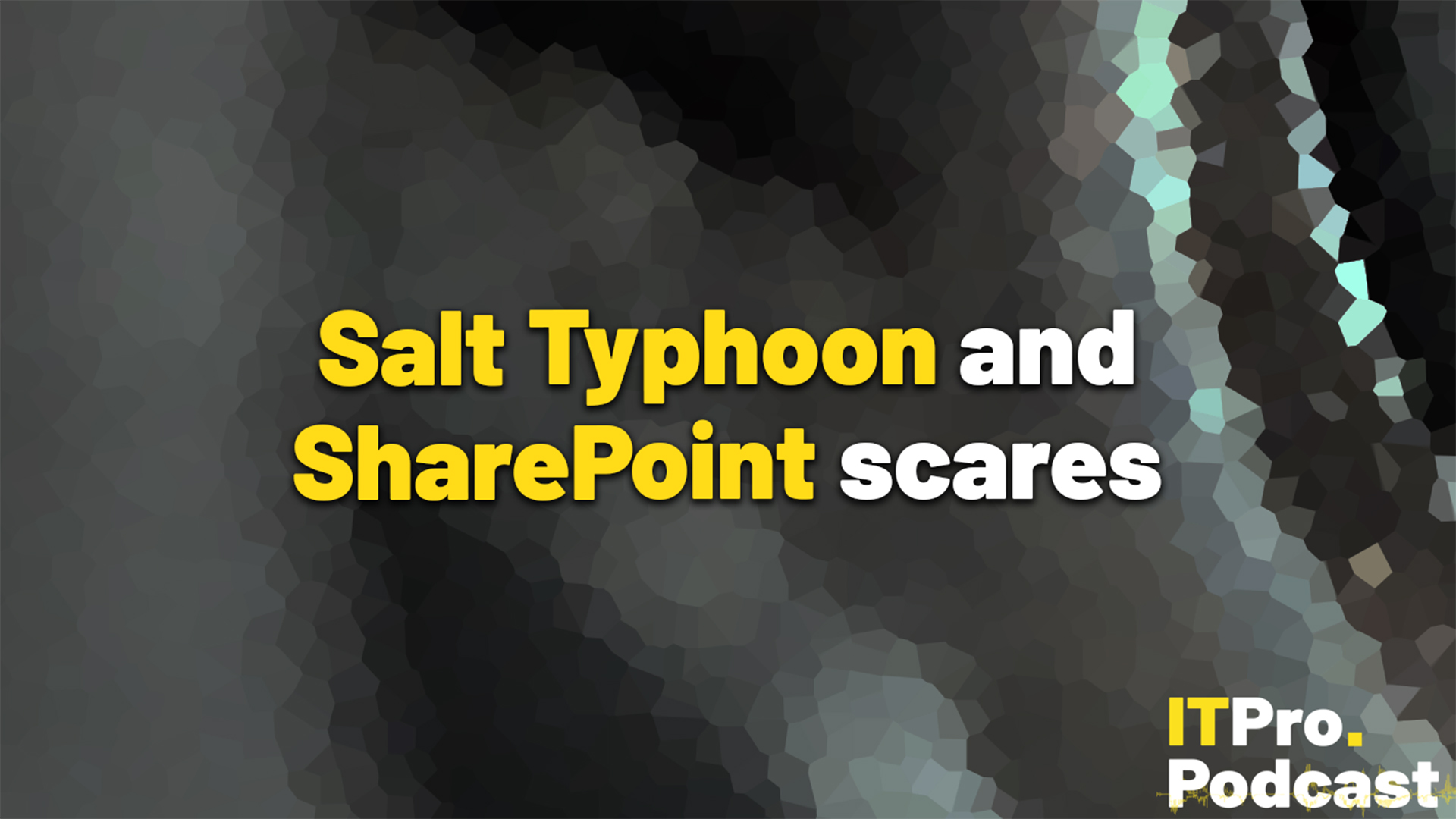 July rundown: Salt Typhoon and SharePoint scares
July rundown: Salt Typhoon and SharePoint scaresITPro Podcast US public sector organizations are under serious threat from the state-backed hacking group
-
 Can the UK ban ransomware payments?
Can the UK ban ransomware payments?ITPro Podcast Attempts to cut off ransomware group profits could instead harm businesses

